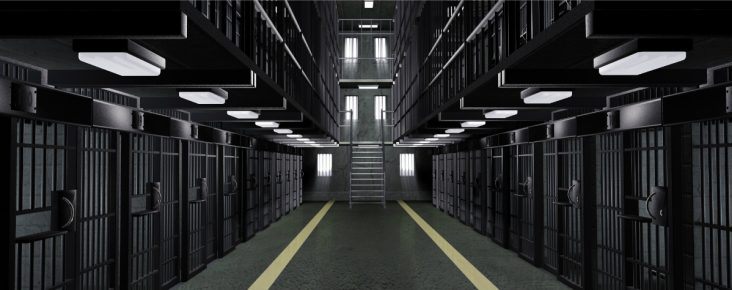Rep. Gazaway: Sentencing reform may result in multiple bills, not omnibus package
by February 1, 2023 6:39 pm 1,093 views

Rep. Jimmy Gazaway, R-Paragould, one of the key legislators shaping a final truth-in-sentencing reform effort, said Wednesday (Feb. 1) that an omnibus bill on criminal justice changes may require multiple bills and will come with a substantial price tag.
Appearing on Talk Business & Politics Daily, Gazaway said there are legal concerns about putting multiple solutions into one bill.
“One of the things that’s been discussed, as you allude to, is an omnibus bill, and we’ve looked at that. There are some legal concerns about whether or not you can put lots of different proposals that may vary in terms of their intent into the same bill,” he said. “And so now we’re looking at splitting those out where we initially thought we could put them all into one bill.”
Gazaway is co-sponsor with Sen. Ben Gilmore, R-Crossett, of HB 1002 and SB 2, companion bills titled the “truth in sentencing and parole reform act of 2023.”
“It may be that we have to file a new bill, a public safety act of 2023, for instance, and put several of those proposals in. But I’m certainly not opposed to splitting it out,” Gazaway said. “We have changes that are coming with regard to our law on fentanyl. We have changes that are coming with regard to the law and human trafficking. These are all things that are, I think, part of the attorney general’s agenda, part of the governor’s agenda. And so they may all be a part of one bill or we may separate them out. Those are things that we’re currently discussing.”
The Paragould legislator, who sits on the House Judiciary Committee, also said he would be surprised if new legislation or amended legislation is filed by next week.
“I think next week would be a pretty quick timeline, but you never know,” he said.
Gazaway outlined how some of the sentencing changes may work in his TB&P interview. For violent crimes, such as murder, aggravated robbery and kidnapping, no chance of parole is being considered. For lesser violent crimes, parole may be possible after serving 85% of sentences, much like the federal level.
“So that’ll be all of the rest of the violent crimes plus certain serious, what we call serious non-violent crimes. Not that all felonies aren’t serious, but we understand that there’s kind of a hierarchy. Some are more serious than others. So the serious non-violent [crimes], which are going to include things like human trafficking, arson, and those, will be under an 85% essentially early release eligibility,” Gazaway said.
There will also be a 50% and 25% parole eligibility level for non-violent crimes.
“The way that’ll work is, currently under the parole system that we have now, people are just automatically eligible to be released. They don’t have to do anything. We just turn people out after having served a fraction of their sentence because that’s the way our law is structured. That’s going to end,” he said. “You can earn if you earn meritorious good time, if you participate in the programming, if you learn a trade, for instance, you can earn a 50% earned good time credit toward early release for certain non-violent offenses, and then up to 75% or other non-violent offenses. So that’s what we’re looking at as far as the parole reform goes.”
Gazaway said the bill (or bills) he helps bring forward will also address expanded funding for a variety of specialty courts aimed at keeping people with problems from ever entering prison.
“With respect to the non-violent crimes, what we have to do is try to, number one, divert those folks from hopefully ever entering the prison population to begin with,” he said. “One way that we’re looking at doing that is to try to expand funding for things like drug court, mental health court, veterans courts, or specialty courts, so that instead of sending people to the penitentiary, we can send them to get the treatment that they need. Expanding mental health beds that we have in the state. We don’t currently have enough mental health beds and capacity to house people who are truly suffering from a mental health crisis. And so we’re looking at expanding funding for that, looking at expanding funding for substance abuse beds in the state. And so the hope is that those folks don’t ever enter the prison population to begin with.”
Other approaches to helping slow down recidivism is delaying the start of prison fines that are immediately due upon prison release, helping secure driver’s licenses and birth certificates to help with employment opportunities to go along with the trade and education efforts that he hopes will be beefed up in prison.
All of this reform carries a big price tag: longer sentences means more prison resources; current overcrowding needs must be addressed; specialty courts and workforce programs cost money. Gazaway said the state Sentencing Commission is preparing an impact report on how all of these proposals will affect the prison population, but lawmakers need to be prepared to pay a big tab.
“Obviously, I think it’ll tally into the hundreds of millions of dollars, but I can’t give you an exact number today,” he said.
You can watch Gazaway’s full interview in the video below.
